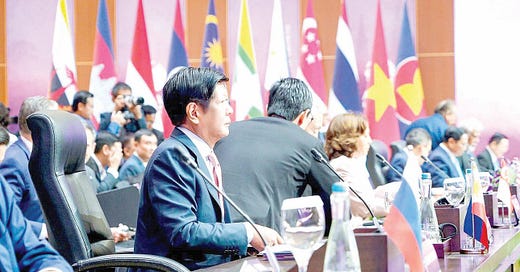By: Viswa Nathan
President Ferdinand Marcos Jr. had good reason to be pleased as he returned home from the Association of Southeast Asian Nations (ASEAN) summit and the East Asia Summit (EAS) held in Vientiane, Laos, earlier this month. He had impressed upon some ASEAN leaders the need to rethink their stand on China’s claims and actions in the South China Sea.
Addressing leaders of regional and global powers like Australia, China, India, Japan, New Zealand, South Korea, Russia, and the United States, as well as the ASEAN, at the EAS, Marcos delivered two clear messages: First, the Philippines will continue to defend its sovereign rights and jurisdiction in the South China Sea in accordance with international law. Irrespective of what happens, he said, “it was important to show to the world and our people that we are in the business of protecting our sovereignty.” Second, his concern about ASEAN turning a blind eye to aggressors in the South China Sea. The silence, he said, “diminishes” the regional block.
Before heading to Vientiane, Marcos signed a law called Self-Reliant Defense Posture Revitalization that was designed to enhance the capability to protect sovereignty. It will promote local production of defense equipment, seeking to make the country militarily self-reliant, and counter “unconventional threats" in the current defense and security landscape. Building such defense capability has been discussed for decades since the EDSA revolution, but no leader has taken the initiative to realize it. Manila’s benefactor, the United States, also didn’t support it for its own vested interest…



